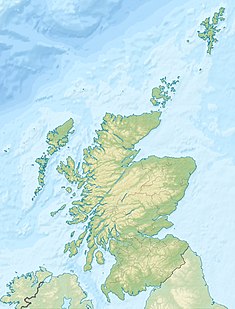Grangemouth Oil Refinery

Overview of the KG Ethylene Plant.
|
|
| Country | Scotland, United Kingdom |
|---|---|
| City | Firth of Forth, Grangemouth |
| Coordinates | 56°01′05″N 3°41′53″W / 56.018°N 3.698°WCoordinates: 56°01′05″N 3°41′53″W / 56.018°N 3.698°W |
| Refinery details | |
| Operator | Petroineos |
| Owner(s) |
Ineos PetroChina |
| Commissioned | 1924 |
| Capacity | 200,000 bbl/d (32,000 m3/d) |
| No. of employees | 1,200 |
Grangemouth Refinery is a mature oil refinery complex located on the Firth of Forth in Grangemouth, Scotland. Currently operated by Petroineos, it is the only crude oil refinery in Scotland (and will be the only operating oil refinery following the cessation of refining activities at the Dundee Refinery) and currently one of six in the UK. It is reputedly the UK's second-oldest refinery, and it supplies refined products to customers in Scotland, northern England and Northern Ireland, as well as occasionally further afield.
Grangemouth Refinery commenced operation in 1924 as Scottish Oils. Its location at Grangemouth was selected due to the adjacent Grangemouth Docks which supported the import by ship of Middle East crude oils for feedstock, plus the cheap availability of large areas of reclaimed flat land. Another important factor was the abundant availability of skilled labour in shale oil refining: the first oil works in the world, 'Young's Paraffin Light and Mineral Oil Company Limited', had opened in 1851 at Boghead near Bathgate, to produce oil from shale or coal using the process patented in 1850 by Glasgow scientist Dr James Young (known as "Paraffin" Young), for "treating bituminous coals to obtain paraffine therefrom".
With the world's first oil wells coming on-line in 1859 in Pennsylvania in the USA, the global price of oil dropped and many Scottish shale oil works became un-economical and had to either close or concentrate production on other materials. By 1910 only five major Scottish shale oil companies remained, fighting to remain competitive against cheaper imported American oil. During the First World War the British government helped to develop new fields in Arabia to provide cheap oil to sustain the war effort. This drove prices even lower to a point where the shale oil industry was unable to compete, and as a result in 1919 the six surviving companies (including Youngs) came together under the management of the newly formed Scottish Oils. That same year Scottish Oils was purchased by the Anglo-Persian Oil Company, a forerunner of the British Petroleum Company (later known as BP)
...
Wikipedia

